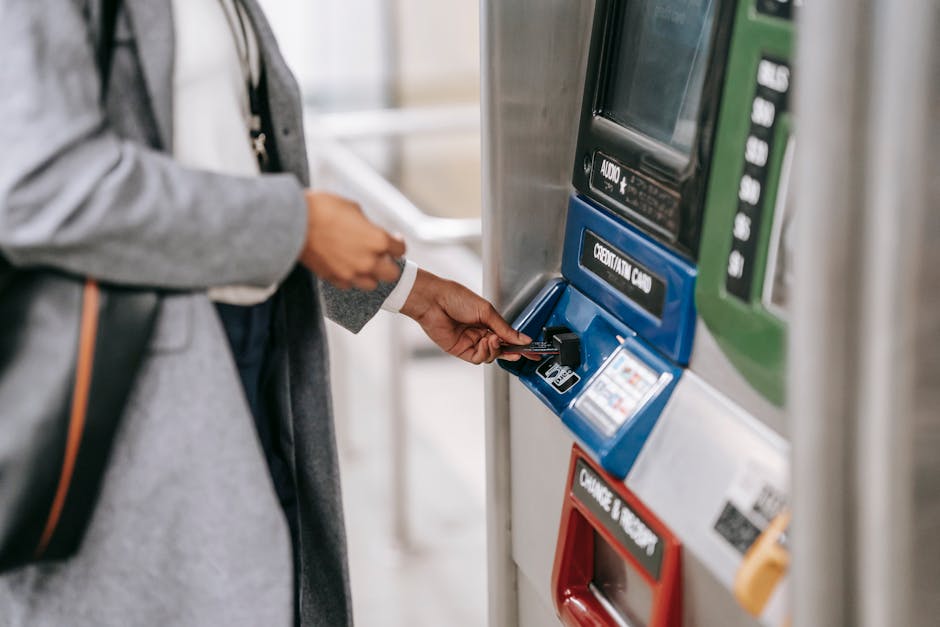Understanding Online Payment Systems: A Guide for Shopaholics
In the age of digital commerce, understanding online payment systems is crucial for those who seek control and convenience in their shopping experiences.
This comprehensive guide aims to shed light on the various types of online payment methods, delve into the intricacies of credit card payments, explore the world of digital wallets, and emphasise the importance of implementing robust security measures.
By equipping shopaholics with this knowledge, they can confidently navigate the online payment landscape and enjoy a seamless shopping journey.
Key Takeaways
- Online payment systems facilitate secure and convenient transactions, saving time for both buyers and sellers.
- They enhance the overall shopping experience by providing increased security for sensitive financial information.
- Different types of online payment methods, such as credit/debit cards, e-wallets, mobile payments, and peer-to-peer transactions, should be understood for making informed decisions.
- Credit card payments offer protection against fraud, access to rewards programmes, and a convenient and secure method for online purchases. Digital wallets provide convenience, enhanced security, contactless payments, and integration with loyalty programmes.
Importance of Online Payment Systems

Online payment systems play a crucial role in facilitating secure and convenient transactions for shopaholics, enabling them to make purchases from the comfort of their own homes. The advantages of online payment systems are manifold, and their impact on e-commerce is significant.
One of the primary advantages of online payment systems is the ease and speed with which transactions can be completed. With just a few clicks, customers can make payments and receive instant confirmation, eliminating the need for manual processes and reducing the risk of errors. This efficiency not only saves time for both the buyer and the seller but also enhances the overall shopping experience.
Another advantage of online payment systems is the increased security they offer. These systems employ advanced encryption technologies and robust security measures to protect sensitive financial information, such as credit card details. This ensures that customers can shop online with peace of mind, knowing that their personal and financial information is well-protected.
Furthermore, online payment systems have had a profound impact on e-commerce. They have played a pivotal role in driving the growth of online shopping, as they have made it easier for customers to make purchases online. This has led to a surge in the number of online retailers and a significant expansion of the e-commerce market.
Types of Online Payment Methods

There are various types of online payment methods available for shopaholics to choose from. These methods have evolved over time to cater to the needs of consumers who prefer the convenience of digital transactions. Here are four popular online payment methods:
-
Credit/Debit Cards: This method involves the use of a credit or debit card to make online purchases. It is one of the most widely accepted payment methods and offers a high level of security.
-
E-wallets: E-wallets, such as PayPal and Apple Pay, allow users to store their payment information securely in a digital wallet. This eliminates the need to enter card details for each transaction and provides an added layer of convenience.
-
Mobile Payments: With the increasing use of smartphones, mobile payment apps like Google Pay and Samsung Pay have gained popularity. These apps allow users to make payments directly from their mobile devices, making it quick and easy to complete transactions.
-
Peer to Peer Transactions: Peer to peer payment platforms, like Venmo and Zelle, enable individuals to send and receive money directly to and from their friends or family members. This method is particularly useful for splitting bills, paying back debts, or sharing expenses.
Understanding these different types of online payment methods is essential for shopaholics who want to make informed decisions when it comes to their preferred payment options.
Transitioning into the subsequent section about understanding credit card payments, let’s delve deeper into the intricacies of using credit cards for online transactions.
Understanding Credit Card Payments

To delve deeper into the intricacies of digital transactions, the focus now shifts to understanding the process of credit card payments. Credit card payments are one of the most common and convenient ways to make online purchases. They offer a secure and efficient method of payment, allowing consumers to shop with confidence and ease.
One key advantage of credit card payments is the protection they provide against fraud. Credit card companies have advanced security measures in place to detect and prevent fraudulent transactions. In the event of unauthorised charges, consumers can dispute the transactions and not be held liable for the fraudulent activity.
Credit card payments also offer the added benefit of rewards programmes. Many credit card issuers provide rewards such as cashback, airline miles, or loyalty points for every purchase made using their credit cards. These rewards can be redeemed for various perks, including discounts, free flights, or merchandize.
To better illustrate the advantages of credit card payments, consider the following table:
| Advantages of Credit Card Payments || :————————: | :————————: || Protection against credit card fraud | Access to credit card rewards |
Exploring Digital Wallets

Continuing the exploration of online payment systems, we now turn our attention to digital wallets, which offer a convenient and secure method for making online purchases.
Digital wallets, also known as mobile wallets, are applications that store payment information and can be accessed through a mobile device.
Here are four advantages of using digital wallets:
-
Convenience: Digital wallets allow users to store multiple payment methods in one place, eliminating the need to carry physical cards or enter payment details for each transaction. With just a few taps on their mobile devices, users can complete purchases quickly and easily.
-
Enhanced security: Digital wallets use encryption and tokenization technologies to protect users’ payment information. By replacing sensitive card data with a unique token, digital wallets reduce the risk of fraud and unauthorised access to payment details.
-
Contactless payments: Many digital wallets support near field communication (NFC) technology, enabling users to make contactless payments by simply tapping their devices on compatible payment terminals. This feature provides a hygienic and convenient alternative to traditional card swiping or cash payments.
-
Loyalty programmes and discounts: Digital wallets often integrate with loyalty programmes and offer personalised discounts and rewards. Users can easily access and redeem their loyalty points or discounts directly from their mobile wallets, making the shopping experience more rewarding.
Security Measures for Online Payments

One important aspect to consider when making online payments is the implementation of security measures. With the increasing prevalence of online fraud, it is crucial for consumers to understand the steps taken by online payment systems to protect their financial information. Fraud prevention is one of the key security measures employed by these systems.
To ensure secure online payments, many platforms use advanced encryption technology. Encryption is the process of converting sensitive information into an unreadable format, which can only be deciphered with the use of a decryption key. This ensures that any data transmitted during the payment process is protected from unauthorised access.
In addition to encryption, online payment systems often employ multi-factor authentication to enhance security. This involves the use of multiple methods to verify the identity of the user, such as a password and a unique code sent to a registered mobile device. By requiring multiple factors, the likelihood of unauthorised access is significantly reduced.
Furthermore, online payment systems continuously monitor transactions for any suspicious activity. They employ sophisticated algorithms to detect patterns of fraudulent behaviour, such as unusual spending patterns or multiple failed login attempts. In such cases, additional verification steps may be required to ensure the legitimacy of the transaction.
Tips for a Smooth Shopping Experience

For a seamless shopping experience, it is important to follow these essential tips:
-
Research before making a purchase: Take the time to read reviews, compare prices, and research the seller’s reputation. This will help you make informed decisions and avoid scams or low-quality products.
-
Use secure payment methods: Opt for trusted payment gateways or platforms that offer buyer protection, such as PayPal or credit cards. Avoid sharing sensitive information, such as your social security number or full bank details, unless necessary.
-
Keep your personal information safe: Be cautious when providing personal information online. Only share necessary details, such as your shipping address, with reputable sellers. Avoid giving out unnecessary information that could be used for identity theft.
-
Take advantage of shopping hacks: Look for discounts, coupons, or promotional codes before making a purchase. Sign up for newsletters or follow your favourite brands on social media to stay updated on exclusive deals. Additionally, consider using price comparison websites or browser extensions to find the best deals available.
By following these tips, you can ensure a smooth shopping experience while minimising the risk of falling victim to scams or fraudulent activities.
Conclusion
In conclusion, understanding online payment systems is essential for shopaholics and anyone who frequently engages in online shopping. By familiarising oneself with the different types of online payment methods, such as credit card payments and digital wallets, individuals can make secure and convenient transactions.
It is crucial to prioritise security measures, like using strong passwords and regularly monitoring accounts, to safeguard personal and financial information. Additionally, a recent study found that 68% of online shoppers prefer using digital wallets for their purchases, highlighting the growing popularity and convenience of this payment method.
Contact us to discuss our services now!
